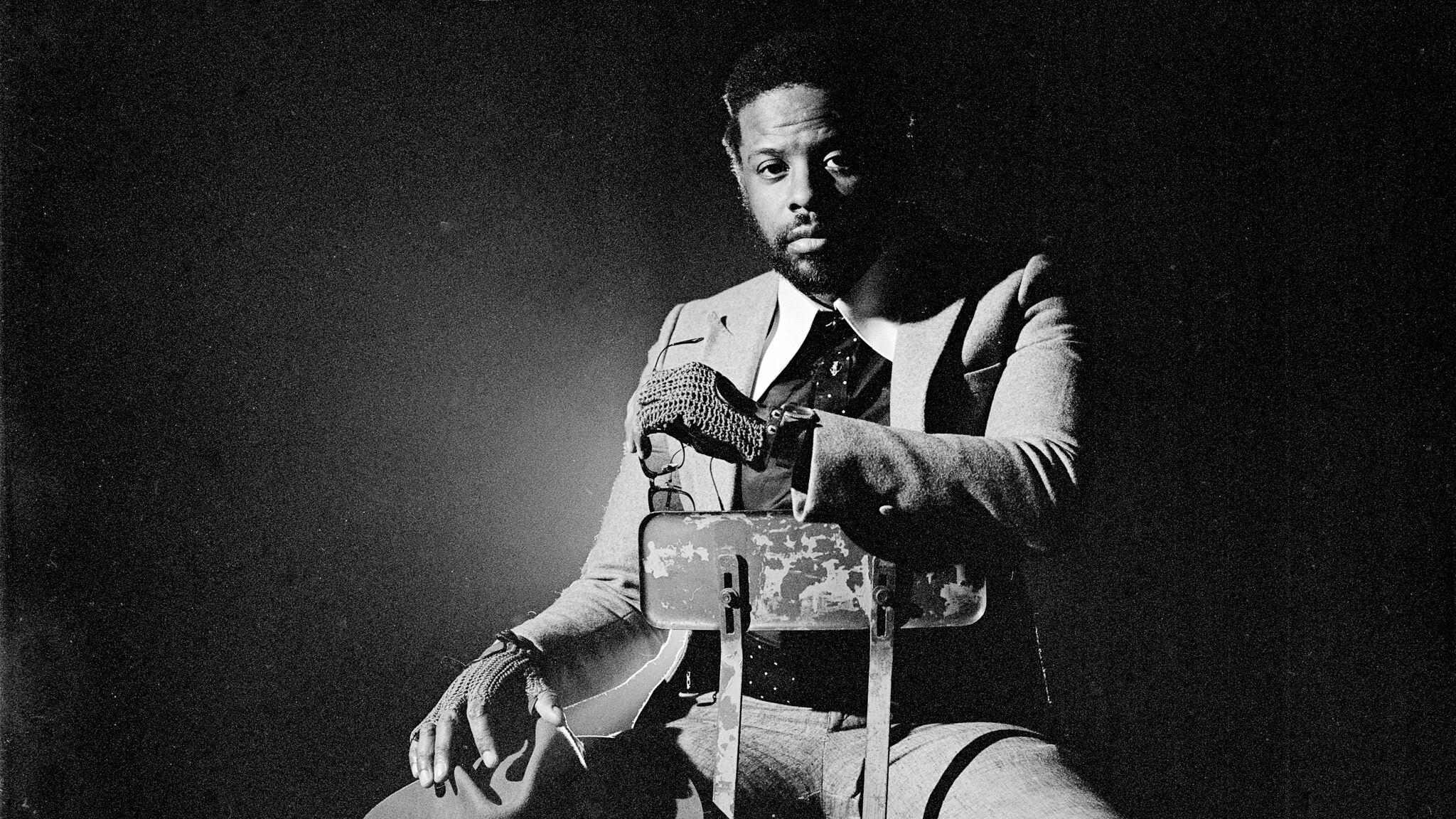By the time I get Adrian Younge on a Zoom call one recent afternoon, the multi-instrumentalist and producer is taking a begrudging break from his work at Linear Labs, his all-analog studio in L.A.
“I’ve been here since like, 5 am,” the 46-year-old admits, somehow looking none the worse for having spent the previous eight hours or so tinkering away at another project.
“I wake up early every day, and I’m excited to do my job because I love what I do, but the work is relentless,” Younge says. “The problem is that the more disciplined I become, the more I realize I could finish in a day. Then the next year I’m doubling what I was doing the first year. It gets to the point where I’m doing triple the amount of work in a 10- or 12-hour work day.”
Younge’s indefatigable work ethic has been a constant since he burst into the public consciousness in 2009 with his retro-sounding score for the throwback Blaxploitation film Black Dynamite. Since then, he’s left his fingerprints on a remarkable list of projects, producing tracks or albums for rappers like Jay-Z, Ghostface Killah and Kendrick Lamar. His IMDb page lists entries for soundtracks he recorded for the Marvel series Luke Cage, the Apple TV+ drama Sugar, and a documentary on Rick James.
The biggest waves Younge has stirred throughout his still-young career come from the concept albums he releases under his own name and through Jazz Is Dead, a concert series and record label he started about five years ago with former A Tribe Called Quest member Ali Shaheed Muhammad.
Through the latter, Younge has honored some of the many Black artists whose records have often formed the backbone of hip-hop tracks. Under the JID umbrella, he and Shaheed Muhammad have staged concerts and tours for tropicália legend Arthur Verocai, reggae singer Sister Nancy, and soul jazz organist Ronnie Foster. And if Younge connects with the artists onstage, they get invited to Linear Labs to record an entry in the Jazz Is Dead anthology series.
“We only work with people who really inspire us to work,” Younge says. “Just because they made good music doesn’t mean we’re inspired to work. And are we vibing? Do we feel like we could continue each other’s conversations sonically? Most of the time, the answer is yes.”
Another such artist is Ebo Taylor, the 89-year-old Ghanaian highlife legend who recorded an album of head-nodding Afrobeat at Linear Labs released In January. Taylor is set to take off on a JID-sponsored tour in May. Dubbed “America’s Farewell Tour,” Taylor stops at Revolution Hall on May 10.
According to Younge, the goal with all the JID sessions they’ve done to date is “to make sure that when they come here, they feel as comfortable in being themselves, being that teenager or young adult that was working in a studio like this with all tape, all real instruments. A lot of these artists, their heyday was the ’60s and ’70s. When disco came in, they had to try to adapt. That’s how people got into soft jazz, not realizing that when they think they’re becoming more hi-fi, they’re just becoming more sterile.”
Truly, the work that Younge has done for the JID series and the music he has put out under his own name sound more alive than most anything else being released today. The animating spirit of his analog recording methods and his history as a self-taught musician in search of that always elusive state of perfection have given him free rein to follow whatever path opens up to him.
Something About April, Younge’s trilogy of psych-soul albums, is a sparkling example of his artistic wanderings. The first two April entries filter funk and R&B through the lens of ‘70s-era Italian and Indian film soundtracks, demonstrating a warm romanticism undercut with the incursion of sitars and strings, and rhythms bordering on sleazy. For the third volume, out April 18, Younge found inspiration in Brazil’s tropicália movement when a group of young radical musicians exploded the possibilities of their homegrown samba and carioca with fuzzy guitars and hallucinatory lyrics.
“Brazilian music is really African music at its roots,” Younge says. “When you study Brazilian music, you’re listening to the evolution of a Black sound from jazz to everything we do. So when you first get a taste of it, it sounds familiar. Then when they start singing, there’s something a bit foreign to it, but there’s something that you understand.”
The resulting album Younge made is a succulent listen, dripping with honeyed vocal work from a chorus of modern Brazilian greats like Céu, Manu Julian and Luiza Lian, and verdant music—almost all of it performed by Younge—that aches with longing both spiritual and romantic.
“I wanted to make an album as if I was Quincy Jones who came from the U.S. and spent time in Brazil and worked with Brazilian artists to make this psychedelic soul album for Brazil,” he says. “Like I came out there in ’71, ’72 to make this album and we’re only now discovering it.”
Younge’s goal now is to figure out how to re-create the lush sound of all three volumes of April in a live setting for his upcoming tour. For the initial run, including a stop at the Aladdin Theater on March 27, he will be joined by a 10-piece band. But on a few dates, Younge will lead a full 35-to-40-piece orchestra.
“I plan to go really all out,” he says. “For a lot of my fans, my Something About April albums are their favorites out of my catalog. So I want to give back to people for showing me so much love for so many years. We’re just going to be kind of going crazy onstage.”
SEE IT: Adrian Younge at Aladdin Theater, 3017 SE Milwaukie Ave., 503-234-9694, aladdin-theater.com. 8 pm Thursday, March 27. $25.
